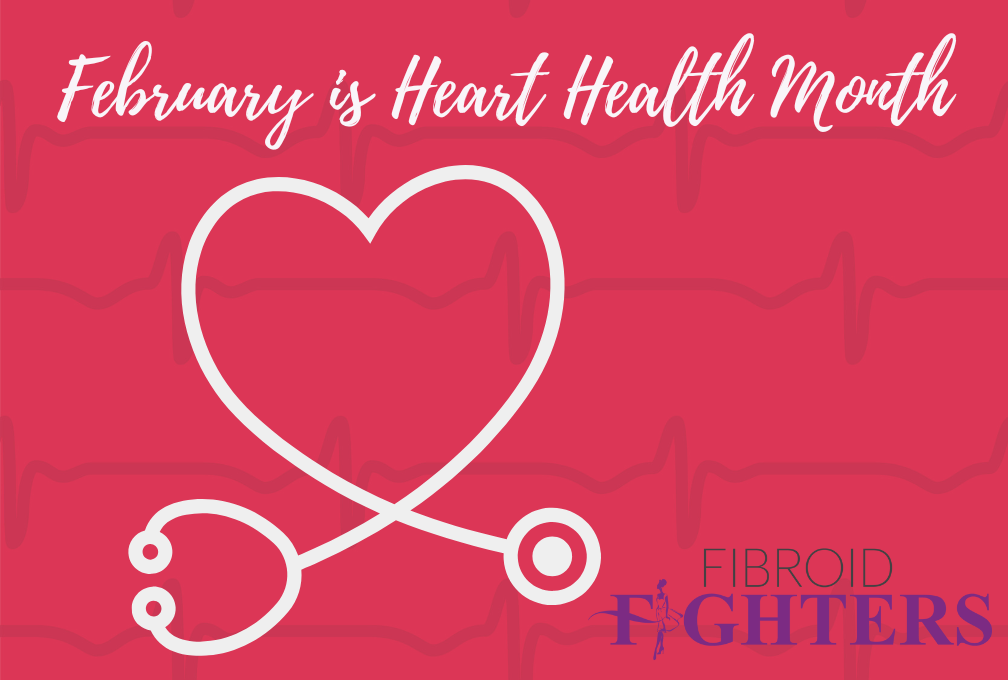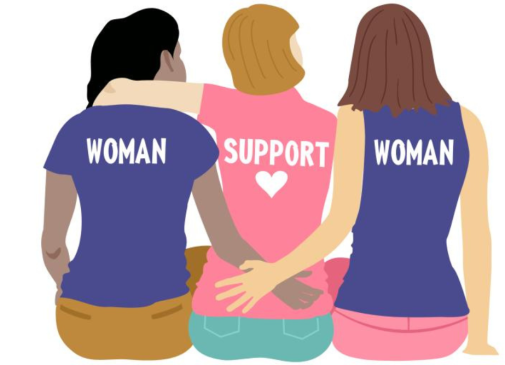
If you are someone living with fibroids, there’s a possibility you feel concerned about how fibroids impact your health.
Uncontrollable bleeding, unpredictable cycles, severe pelvic pain, and frequent urination are just a few painful symptoms you may battle daily.
Uterine fibroids have been associated with hypertension and cardiovascular disease (CVD). A recent study in the Journal of Women’s Health further explored the presence of markers for CVD and discovered that CVD risk factors were more common in women with fibroids.
During Heart Health Awareness Month, it’s an excellent time to understand better how fibroids can affect your heart health and the relationship between cholesterol and hypertension- which are all connected to your overall well-being.
What Is HDL and LDL Cholesterol?
New studies have also shown that women with uterine fibroids seem to have distinctly low cholesterol. This is known to protect against heart attacks and strokes. According to a recent article, over 45 percent of women over 20 have elevated cholesterol levels.
Additionally, the same study reported that nearly 76% of women don’t even know what their cholesterol numbers mean. This education gap is crucial to close, if only so women can have the opportunity to understand the risks of living with high cholesterol and what problems could occur.
Different kinds of cholesterol move throughout your body. Even though we tend to make general statements like “cholesterol is bad,” your body needs balanced levels of good cholesterol to produce reproductive hormones and digestive bile and repair damaged tissue. So, not all cholesterol is created equal, but how can you know which is the right type?
- LDL (low-density lipoprotein): Often referred to as “bad cholesterol”. High levels of LDL cholesterol raise your risk for heart disease, peripheral artery disease (PAD), and stroke by accumulating on the walls and blocking passageways for blood to travel. The majority of cholesterol in your bloodstream is LDL. Foods with high levels of saturated fat, salt, and processed foods can increase your LDL levels.
- HDL (high-density lipoprotein): Also known as “good cholesterol”. These lipoproteins are able to absorb excess cholesterol and carry it to the liver. The liver does its job and cleanses it from the body. Increased HDL cholesterol levels can lower your heart disease, PAD, and stroke risk. Eating foods like olive oil, legumes, fish, etc., losing weight, and exercising regularly can raise your HDL levels.
There are many reasons you may have elevated levels of LDL or HDL cholesterol, including genetics, smoking, weight, diet, and physical activity. It’s important to consult your doctor annually about your cholesterol levels and how to manage them effectively.
Estrogen and Cholesterol
Changes in estrogen and cholesterol often go hand-in-hand. When your hormones, especially estrogen, decline this can cause a rise in total cholesterol levels due to increased amounts of LDL as well as triglycerides (fats found in your blood). When estrogen levels decline, LDL increases and HDL decreases. This ultimately can lead to plaque buildup with the arteries, which can cause heart disease, PAD, and stroke.
Estrogen production and reduction is closely related to different stages of a woman’s life: puberty, pregnancy, perimenopause, and menopause. Similarly, how much estrogen your body produces influences fibroid growth. Unbalanced estrogen levels caused by puberty, pregnancy, perimenopause, genetics, weight, and other lifestyle factors are theorized to cause fibroids to develop.
Both estrogen and cholesterol are important levels that must be understood and managed. Talk to your doctor if you think you may have elevated numbers.
Menopause and High Cholesterol Levels
If you’re going through menopause and have high cholesterol levels, you’re not alone.
Symptoms of Menopause include [1]
* Hot flashes
* A loss in bladder control
* Insomnia
* A dry vagina that may lead to painful sex
* Mood swings
* Body changes in weight and comfort
Some of these symptoms even overlap with fibroid symptoms, which can be a hint on how high cholesterol works with menopause, but also fibroids. This is another reason why it’s essential to go to the doctor when your body is doing something it doesn’t always do, there just may be underlying causes causing your symptoms.
During menopause, estrogen drastically declines, and this sudden decline of estrogen levels is associated with a progressive increase in total cholesterol. However, during menopause, you’re more likely to see an increase in your LDL levels and a decrease in your HDL levels.
Therefore, people who are about to go through menopause or are currently going through this new life stage should consult their doctor about ways they can manage their “good and bad” cholesterol. Adopting healthy habits can help manage symptoms of menopause and high cholesterol levels.
Uterine Fibroids and Hypertension
As we mentioned above, new studies suggest that women living with fibroids have low LDL cholesterol levels, which are known to protect against heart attacks and strokes.
However, another study published by the National Library of Medicine revealed that aging and higher levels of LDL could actually increase your risk of developing fibroids in the first place. But what about blood pressure? Does having high blood pressure and cholesterol levels increase your risk of fibroids? Is cholesterol, uterine fibroids, and hypertension connected?
Yes, hypertension (high blood pressure) and high cholesterol are two factors that increase your overall risk of fibroids. Increased blood pressure can damage the walls of your arteries and other blood vessels. Arteries and vessels aren’t able to withstand the constant high-pressure blood flow; therefore as a result, they can become damaged over time. Tiny tears and damage caused by hypertension create crevices and areas where LDL cholesterol can build up over time. If you have increased levels of LDL and low levels of HDL, the good cholesterol isn’t able to cleanse the blood as efficiently as it should be.
Uterine Fibroids and Cardiovascular Disease
Uterine fibroids have also been associated with atherosclerotic cardiovascular disease (CVD). There have been multiple studies in the past that examined women with symptomatic fibroids that went under a hysterectomy, which happens to be a risk factor for CVD.
972 women were screened by ultrasound for fibroids at the age range of 15, 20, to 25. The studies showed that 52% of women had fibroids, and the CVD risk factors were more common with those risk factors.
However, it’s important to know that despite women with fibroids having more CVD risk factors, the presence of fibroids is not needed to be at risk for CVD. It is still entirely possible to get CVD without having fibroids.
Want to learn more about risk factors for uterine fibroids? Sign up to receive our newsletter!
How Are Cholesterol, Uterine Fibroids, and Hypertension Connected?
Both of these individual conditions increase cardiovascular disease, especially for women. People living with high LDL cholesterol levels often end up dealing with hypertension. And through studies, we can see that high cholesterol, uterine fibroids and hypertension all have similar genetic and lifestyle factors.
In fact, you can see the correlation between all three of these issues in African American women. Black women are more likely to develop hypertension, fibroids, and high cholesterol than people of other races. Nearly 80 percent of Black women have fibroids by the age of 50. Approximately 76 percent of Black women developed hypertension by age 55. For cholesterol, close to 37 percent of Black women were at an increased risk for high LDL levels.
Therefore, increased LDL cholesterol, uterine fibroids, and hypertension are closely related, but researchers still need to establish a direct cause-effect relationship between the three conditions. Consulting your doctor about your personal and family history of blood pressure, cholesterol, and fibroids can help you be proactive about your risk factors.
How to Manage Fibroids and High Cholesterol
It’s important to be aware of these certain risk factors that could lead to cardiovascular disease. Knowing your family history can help determine if you’re at an increased risk for fibroids and high cholesterol.
For National Heart Awareness Month, the Fibroid Fighters Foundation is raising awareness about high cholesterol, uterine fibroids and hypertension. Discussing how these conditions can be related is important in order to be proactive about your health. Understanding how your hormones, like estrogen, are related to elevated LDL cholesterol levels is vital. Treating fibroids and high cholesterol can minimize cardiovascular risk and help you live healthier, more active lives without fibroid symptoms.
Want to learn more? Sign up for our newsletter to get the latest information on fibroids, research and treatment advances. Subscribe here.







